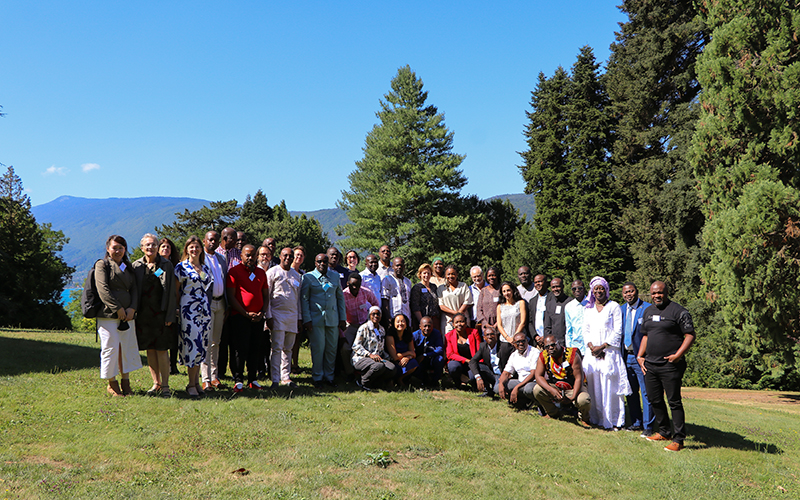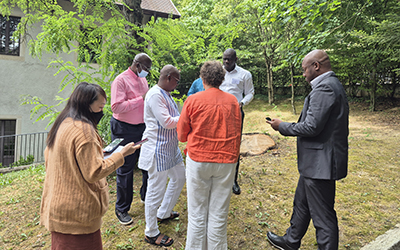
The class of 2025 consisted of 29 epidemiologists from the human, animal, and environmental health sectors.
This year, 29 French-speaking epidemiologists from 12 countries attended the Les Pensières Center for a week’s full immersion in their specialty. In line with the course’s One Health approach, the selected participants represented the sectors of human, animal, and environmental health, opening the door to multidisciplinary collaboration.
“It’s a huge honor to be able to take part in a course as enriching as this, led by high-level experts and organized in such a professional setting. It was also a great pleasure to meet colleagues from many countries. The professional discussions between cultures were particularly inspiring,” emphasized Keooudomphone Vilivong, project coordinator for the influenza monitoring program at the Laos National Center for Laboratory and Epidemiology (NCLE).
Led by Professor Vanhems, director of public health programs at the Mérieux Foundation, and Dr. Rose of EpiConcept, the course underlined the importance of surveillance and the associated warning systems, but also of analyzing and managing epidemic response in complex emergency situations, in order to control emerging and re-emerging infectious diseases.

Case studies and practical fieldwork are central to the course.
Emphasizing a bottom-up approach, the course invited participants to attend plenary lectures, take part in round-table discussions, and above all apply their skills to several case studies.
That’s how the park around the center was transformed into a testbed for new sampling and data collection technologies.
By the end of the course, the participants had acquired the keys for defining priorities for action in complex situations, organizing appropriate missions on the ground, establishing and then evaluating a warning and surveillance system, conducting an epidemic investigation to prevent and monitor infection in an epidemic, and understand the roles of research, laboratories, and community engagement in epidemic response.
The demanding, comprehensive program drew on contributions from recognized international experts. It was developed by a scientific committee comprised of representatives from the following institutions: EpiConcept, the Mérieux Foundation, CEPI, GAVI, Institut Pasteur in Cambodia and Senegal, WHO, and Nazi Boni University.
This third edition of EpiCourse received financial support from CEPI and the Fleming Fund. This support made it possible to award grants to cover several epidemiologists’ attendance costs.
“Thanks also for the financial support in the form of the grants that enabled so many of us to take part. Apart from the high-quality scientific content, this was a week of profound human exchanges, shared experiences, and reinforcement of our collective commitment in the face of infectious diseases,” summed up Musa Bwema, a physician in the Rodolphe Mérieux/INRB laboratory in Goma, Democratic Republic of the Congo.
